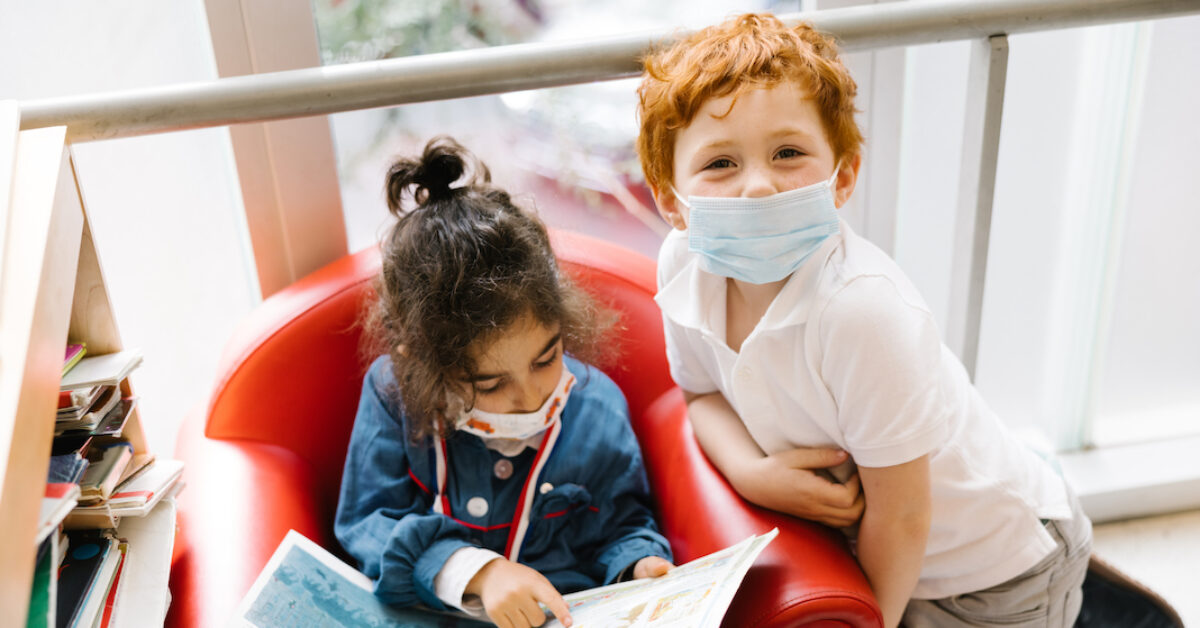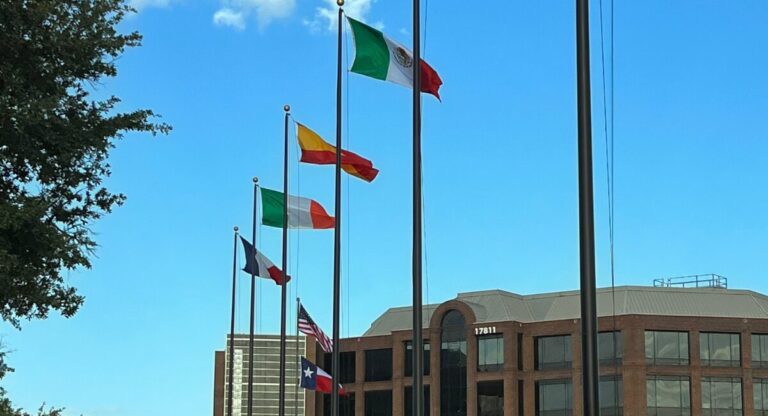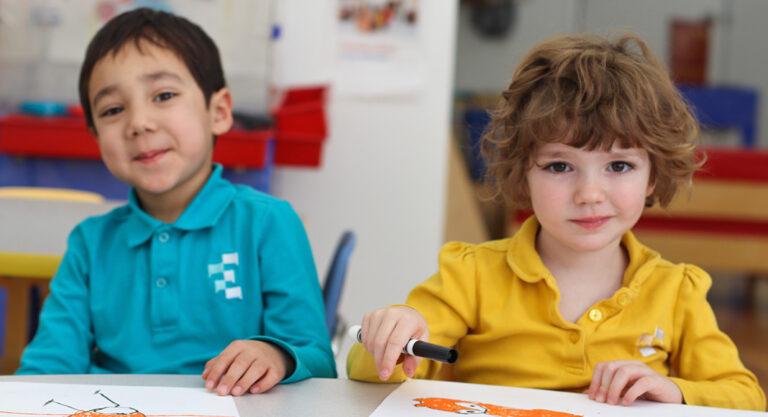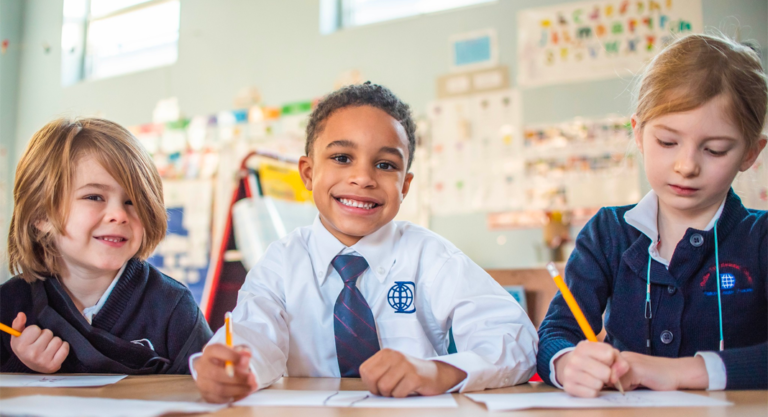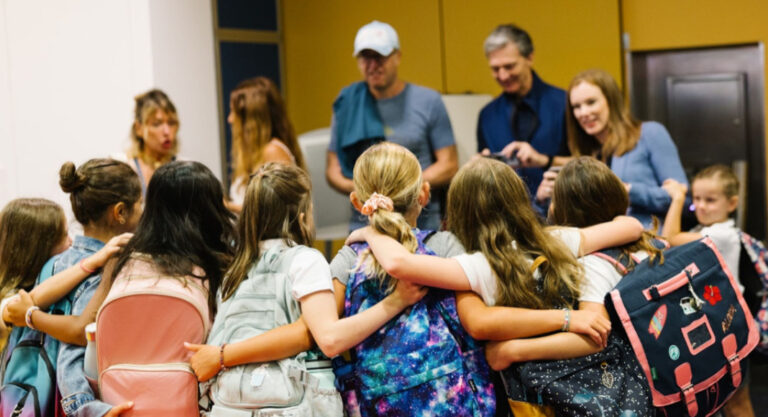[Sponsored content] Bilingual education has been a hot topic amongst parents and educators for years. Some benefits are obvious, like the ability for children to learn a second language much more easily when they are little, allowing them to achieve full fluency as adults and helping them considerably in the professional world. But this one benefit is just the tip of the iceberg: there is a much broader set of soft skills that bilingual children develop more easily.
What about the drawbacks? Some parents worry that learning two languages slows down the learning process, and even makes it harder for children to achieve mastery in either language. Is that true?
We talked with Vannina Boussouf, the director of the Primary School at the Lycée Français de New York, to find out more.
The effects of bilingualism on the brain
A lot is happening in a child’s brain as they grow up. They are learning how to talk, to be around people…what happens in a multilingual learning environment?
Many parents who are exploring bilingual education for their children fear that by learning in two languages instead of one, their children will end up being less proficient in both languages. When we look at studies about bilingual education, we realize that this is not the case. Au contraire, each language complements the other and, when taught in parallel, learning one language helps strengthen the understanding of the nuances of the other. Children who receive a bilingual education in French and English can have a richer vocabulary in both languages.
The cognitive development benefits of bilingualism are well documented as children with a “bilingual brain” are better at certain executive functions. The constant need to process information in two languages activates the brain’s mental processes more intensely and efficiently–that means a more “agile brain” that can manage multiple tasks, prioritizing, and solving problems across verbal and nonverbal domains. Bilinguals also exhibit greater empathy in communication with others: that comes from the perspective they gain in not only speaking another language, but learning to interpret meaning through subtle cues.
Could bilingualism foster open-mindedness and understanding?
Imagine being four years old, discovering the world around you, and asking “what is this thing called?” and realizing that for the same object, there are multiple words you can use. A loaf of bread is also a baguette. A dog is also a chien. An umbrella is also a parapluie. Isn’t that mind blowing? Or rather, mind opening. You will later find out that these words exist in a network of other words, and that the way these networks are built comes from a culture, a people, a set of beliefs…and your understanding of the world will be that much deeper. Vannina shares with us that “students at the Lycée who study bilingually and are surrounded by students from so many different backgrounds, describe how being bilingual doesn’t just help them understand what people say, but also how they think.” That’s a huge and important added value of bilingualism in a multicultural world.
Bilingualism also fosters adaptability, which is incredible preparation for a generation that is called to live in a connected world. Bilingual children are so used to building bridges between languages that they work with ease across cultures. They also become creative problem solvers and divergent thinkers. These are skills that will be extremely valuable in tomorrow’s world, where innovation will be central.
“Multilingualism and being open to and comfortable in the world go hand in hand,” Vannina points out. And growing up in a multicultural environment has as many benefits for your child as the multilingual aspect. “Growing up around people who don’t look and sound the same really helps with open-mindedness. Children learn to not be afraid of someone who is different. They learn that they can still communicate and build relationships.”
The Lycée Difference
The Lycée Français de New York is well-known by French expatriates in the Big Apple and also by families with a global mindset who are looking to foster that in their children. This 86-year-old, world-renowned institution is committed to bilingual French and American education of the highest standard, with a mission to prepare students of many origins to be thinkers, innovators and leaders both at home and abroad.
The school’s strength comes from the authenticity of the experience offered to students, a bicultural curriculum which marries the rigor, depth and breadth of the French curriculum with a spirit of optimism, ingenuity and a focus on self-confidence present in the best of American independent schools. “We’re very fortunate because the Lycée attracts some of the best teachers from both the French and American educational systems,” Vannina adds.
“At the Lycée, our pluricultural environment provides an authentic context for language learning, which makes language acquisition easier and also helps us leverage bilingual learning into a deep, meaningful, and joyful experience for students from their earliest years.”
The school is accredited by both the New York State Association of Independent Schools and the French Ministry of Education. The Lycée is the only New York City school to offer the French Baccalaureate, the renowned diploma that is a culmination of studies for 800,000+ students around the world each year.
The earlier your child starts, the better
“Children do not have to speak French to join our preschool,” Vannina insists. If you’re a parent looking for a preschool for your child, this is your moment to sign them up for a bilingual preschool. As Vannina puts it, when it comes to bilingual education, “the earlier your child starts, the better.”
Get to know the Lycée:
There’s still time to register for upcoming virtual open houses in order to have an opportunity to meet key faculty, school leaders, parents and our admissions team look at what a Lycée education can mean for a child.
Preschool at the Lycée, Bébé Bilingue – Tuesday, November 9 at 6:30pm
Visit the Lycée’s official website for more details.
Contact Janelle Charles, Director of Enrollment, for any questions about the school: [email protected].
—————-
Sponsored articles do not belong to the editorial team at Frenchly. They are provided or written at the request of the advertiser, who determines the content.

